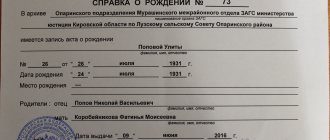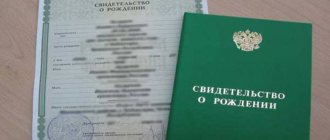People continue to take their free money to banks. There are several reasons for this: it is unsafe to store large sums at home, in the age of electronic payments it is faster to pay for electricity and the Internet using a bank card, and interest is paid on funds deposited. The deposit can be received either by the owner himself or by his heirs in the event of his death. To do this, the latter must present official documents, on the basis of which they will be guaranteed to be paid financial resources.
Receiving a deposit in Sberbank according to a will
The owner has the right to independently dispose of his contribution in the event of death, together with other property. To do this, you need to draw up a will. This is a document that contains the owner's instructions in the event of death. It is subject to mandatory notarization.
If it is not possible to contact a notary, a citizen can have the will certified by the head physician of a hospital or nursing home, the captain of a ship, or the leader of an expedition. In an emergency, you can bring in 2 witnesses to certify the document.
The document regulates the procedure for dividing inherited property in the event of the death of the owner. The recipient of the property can be any individual or legal entity, as well as the state. The will may contain information about the division of the contribution, as well as any other property of the deceased.
To receive a deposit, you must issue a certificate of inheritance rights. To do this, you will need to enter into inheritance in the general manner.
When registering a will and a testamentary disposition for the same contribution, the date of execution matters. The property will be transferred according to a document drawn up later.
Who can be the heir?
A will is the only way to transfer material assets to persons not related to the deceased by kinship. Thus, applicants for receiving a deposit from Sberbank may be:
- relatives, regardless of the degree of relationship;
- individuals who are not related;
- organizations (legal entities);
- capable and incompetent citizens;
- minors;
- subjects of other states.
During the preparation of the letter of administration, the testator is notified that the law has approved a list of persons who are guaranteed to receive their share of the property after the death of the testator (mandatory share). The list of such citizens includes:
- incapacitated relatives and minor children;
- citizens who are dependent on the testator.
Testamentary disposition for a deposit in Sberbank
To dispose of his contribution in the event of death, a citizen can draw up a testamentary disposition. This option saves time and money.
Important! The disposition document allows the owner of the deposit to transfer funds to a specific person. If there are several heirs, then the investor can determine the size of the share of each of them. The remaining applicants are excluded from the inheritance.
Testamentary disposition according to Art. 1128 of the Civil Code of the Russian Federation is drawn up free of charge in the credit institution in which the deposit is opened. It differs from a will in that the document is executed solely in relation to the contribution. It is impossible to provide for the disposal of other property with its help.
A will may set restrictions on the use of funds. For example, if the heir is a minor child, then his parents or guardians act in his interests. But they do not have the right to spend the minor’s funds in their own interests. To remove it, you must obtain permission from the district guardianship department.
Expert opinion
Noskov Georgy
Lawyer. Experience 12 years. Specialization: civil, family, inheritance law.
To eliminate the possibility of abuse, the testator can provide a withdrawal schedule. Also, the order may contain a clause on withdrawal of the deposit when the heir reaches 18 years of age.
If the document was executed before 2002, then the heir should not receive a certificate of inheritance rights. Funds are issued on the basis of the death certificate of the depositor.
How does a disposition differ from a will?
Despite the fact that both a testamentary letter and an order are the basis for the transfer of property by inheritance in the event of death or recognition as deceased (missing), there are significant differences between these documents. These include:
- Place of compilation. A legally binding will can only be executed at a notary's office. The execution of a testamentary disposition is permissible only at the bank branch where the current account is opened.
- As part of the order, only money can be bequeathed (deposit), but the amount can be distributed among the candidates in equal or different parts. A will allows you to dispose of all your property by transferring it for use to other persons.
- Associated costs. Since the order is drawn up at a bank branch as part of the depositor’s personal file, there is no need to pay an additional amount of funds. An employee of Sberbank certifies the voluntariness of the submission of the paper and its authenticity, which serves as a sufficient basis for the paper to obtain legal force. In order for the letter to turn into a proper will, the involvement of a lawyer is required. The legislator has approved that throughout Russia there is a single tax on such notary services - 100 rubles per page of printed text. Additionally, you will need to pay for the services of drawing up a will if the document is written by a lawyer himself.
The rules on how to receive money from Sberbank under a will will be general. That is, it is necessary to first open an inheritance case and draw up a notarial decree on the possibility of entering into inheritance rights.
How to receive money from Sberbank by inheritance without a will
In the absence of administrative documents, inheritance of such property occurs in the general manner. If the account owner did not have time to sign off the property, then the contribution will be included in the inheritance along with other property.
In this situation, inheritance of the deposit will occur according to law. When receiving the property of the deceased according to the law in accordance with Art. 1142 of the Civil Code of the Russian Federation, the parents, children and spouse of the deceased investor have priority rights.
The procedure for inheritance is the same as in the case of a will. Relatives of a deceased citizen need to contact a notary. The key point is the deadline for filing papers - 6 months. If applicants do not submit documents, then relatives of the next line are called upon to inherit. This includes siblings and grandparents of the deceased subject.
After receiving the inheritance certificate, the recipients must contact the bank. Money is issued upon application. If the heir recognized the ownership of the deposit through the court, then when submitting the application it will be necessary to provide a court decision.
How to find the bank where the deceased’s deposits are kept?
Finding and discovering surviving depositories today is not difficult. If there is a will or corresponding order, then all the details will be specified in them. If family members inherit property by law and do not know where the accounts were opened, they will have to resort to the help of a notary. Having access to a wide database, he will be able to obtain data on concluded agreements for opening passbooks and provide them to his heirs and successors.
Compliance with formalities in the process of searching for deposits of deceased relatives
Sberbank is a large financial organization with many internal rules and regulations. To date, a mechanism for cooperation with notaries has already been developed within it, allowing to speed up the procedure for searching for open deposits.
Searching for applicants for inheritance is not the responsibility of bank employees.
Procedure for receiving a deposit from a deceased relative in Sberbank
Procedure for receiving a deposit:
- Contacting a notary.
- Search for contributions.
- Registration of a certificate of inheritance rights.
- Receiving funds from Sberbank.
Important! The amount does not exceed 100,000 rubles. heirs can withdraw from the deposit without a certificate of inheritance rights in order to organize the funeral of the depositor.
Contacting a notary
The testator has the right to assign his property to any person. Having a will greatly simplifies the procedure for registering an inheritance. However, withdrawal of funds from a bank account is preceded by registration of documents with a notary.
An inheritance case is opened upon the application of the heir. Documents are submitted at the place of registration of the deceased citizen.
List of documents for registration of inheritance in the form of a deposit
| No. | Title of the document |
| 1 | Civil passport of the heir |
| 2 | Original testamentary disposition or will |
| 3 | Owner's death certificate |
| 4 | Agreement with the bank (if any) |
| 5 | Passbook (if available) |
| 6 | Certificate about the last place of registration of the deceased |
After the expiration of the deadline ( 6 months ) for accepting the inheritance, the recipient is issued a certificate.
Important! The state duty when registering an inheritance in this case is not withheld (Article 333.38 of the Tax Code of the Russian Federation). Other services (request to search for a deposit) of a notary are paid by the heirs in full.
Sample application for inheritance
Search for contributions
A testamentary disposition and a will are documents confirming the presence of money in the bank. Quite often, citizens are unaware of the existence of deposits registered in the name of deceased relatives.
Important! If the recipients of the deceased's property do not know about the presence of the deposit, then the bank is not obliged to look for them. The unreceived contribution becomes the property of the state.
If the testator did not leave behind a will or did not transfer the document to the heir for any reason, then finding the bank in which the money is located becomes somewhat more complicated. The key document is the bank deposit agreement or passbook.
They display information about the presence of a deposit, the amount of funds and the name of a specific bank. Usually such documents are kept at home. Therefore, it is necessary to look through the personal belongings of the deceased.
The heir can make a request to Sberbank independently. Below is a sample application for seeking a deposit:
Application for the issuance of money
After receiving the inheritance certificate, the applicant will need to contact the bank. To withdraw money from your account, you must write an application. There is usually a sample included in the jar.
The heir must have with him:
- passport of a citizen of the Russian Federation;
- death certificate of the investor;
- a document confirming the heir's rights to the deposit;
- agreement or passbook.
A bank employee will identify the applicant and check the documents provided. If there are no comments to the heir, then he will be given a date to receive the money. If desired, the recipient can re-register the contract in his name without withdrawing money.
In some cases, a document confirming the citizenship of the testator may be required. Among them:
- Extract from the house register. The document confirms not only the place of residence of the testator, but also contains records of registration/extract as of 1991.
- USSR passport insert.
- Certificate from the Federal Migration Service.
If the specified documents are available, the heirs can receive deposits opened by the testator back in 1991. Heirs born between 1946 and 1991 can expect a doubling of the balance. Persons born after 1991 are not entitled to monetary compensation.
Content
When placing an order, you can specify various conditions for receipt. With their help, the testator will protect his successors and achieve certain goals. A total of 4 options for testamentary documents are available, depending on the items entered:
| Order type | Description | Example from life |
| Appointment of executor | The testator chooses a person who will ensure that the last will is carried out. | He decided to inherit and make his brother executor. The relative did not refuse his duties and made sure that the order became known. Only the persons specified in the document could inherit the property. |
| Sub-purpose | The document indicates legal successors and persons who can enter into inheritance in the event of refusal or death of the former. | The parent left a monetary contribution to his son and indicated a sub-heir, who is the testator's grandson. The legal successor actually died along with his father. The funds were transferred to the sub-heir. |
| Laying on | The order contains the conditions for receiving money. When they are implemented, socially useful goals are achieved. | The father bequeathed a large boarding house to the children, but imposed on them the obligation to comply with the previously established order. The assignees had to provide significant discounts to people with disabilities and minors, as well as annually give a certain number of vouchers to the poor. |
| Testamentary refusal | The testator indicates legal successors and legatees in the document. The first group of persons will be given property obligations (payment of utilities, provision of monthly benefits) in favor of the second. | The testator left behind a minor child and a spouse who is addicted to alcohol. In order to preserve funds and provide for his family, he left his personal savings to his brother. The successor did not allow the dependent relative to spend money independently purchasing everything necessary for the family of the deceased. |
The testator has the right to specify the conditions at his own discretion. The successor will be required to either agree or refuse the inheritance so that the monetary contribution goes to another candidate. In addition to the conditions, the order must contain the following information:
- Title of the document;
- information about the owner of the deposit;
- numbers of accounts transferred by testamentary disposition;
- list of applicants and shares due to them;
- rules of law governing the issue;
- obligations of employees of a financial organization;
- number of copies of the testamentary document;
- signatures of the parties.
A total of 2 copies of the document are drawn up and bank stamps are placed on both. One order is transferred to the testator, and the second remains with the financial institution.
Who is entitled to the obligatory share?
When drawing up a will, the testator must take into account the interests of socially vulnerable persons. A similar rule applies to a testamentary disposition, which is drawn up in the bank where the deposit is located.
Mandatory heirs include:
- disabled children/parents;
- disabled spouse/dependents.
These citizens are entitled to at least half of the share that they could count on by law. If the will does not take into account their interests, then the notary is obliged to take the necessary actions to allocate a share of the property. The contents of the will are not important. If a dispute arises between the heirs, it is resolved in court.
Reducing the share of the inheritance or refusing to award it is permitted only by a court decision. The initiator of the legal proceedings is usually the heir, whose rights are significantly limited in the event of the allocation of a mandatory share to the applicant.
Waiver of the obligatory share in accordance with Art. 1149 of the Civil Code of the Russian Federation is drawn up in writing and submitted to a notary.
Benefits and taxation
Any profit is subject to tax. That is why the heirs are especially interested in the question of whether it is necessary to deduct any interest in favor of the state on the money inherited from the account of a deceased relative.
Since 2006, a law has been in force on the territory of the Russian Federation, on the basis of which funds received during the inheritance procedure are not subject to taxation. However, do not forget about the costs of paying the state duty (its amount depends on the final value of the property received) and notary services.
Marital share
If the testator was married at the time of opening the deposit, then such property is the common property of the spouses. Therefore, after the death of one, half of the property belongs to the living spouse.
Allocation of the marital share in accordance with Art. 1150 of the Civil Code of the Russian Federation occurs at the request of the husband/wife. Documents are submitted to the notary within 6 months. Missing deadlines can result in lengthy legal proceedings.
Important! Having received ½ of the contribution as a spousal share, the spouse has the right to claim the share as an heir.








![How to get a mortgage for new buildings in Sberbank in [year]](https://notarius-nn.ru/wp-content/uploads/kak-poluchit-ipoteku-na-novostrojki-v-sberbanke-v-year-godu-330x140.jpg)
